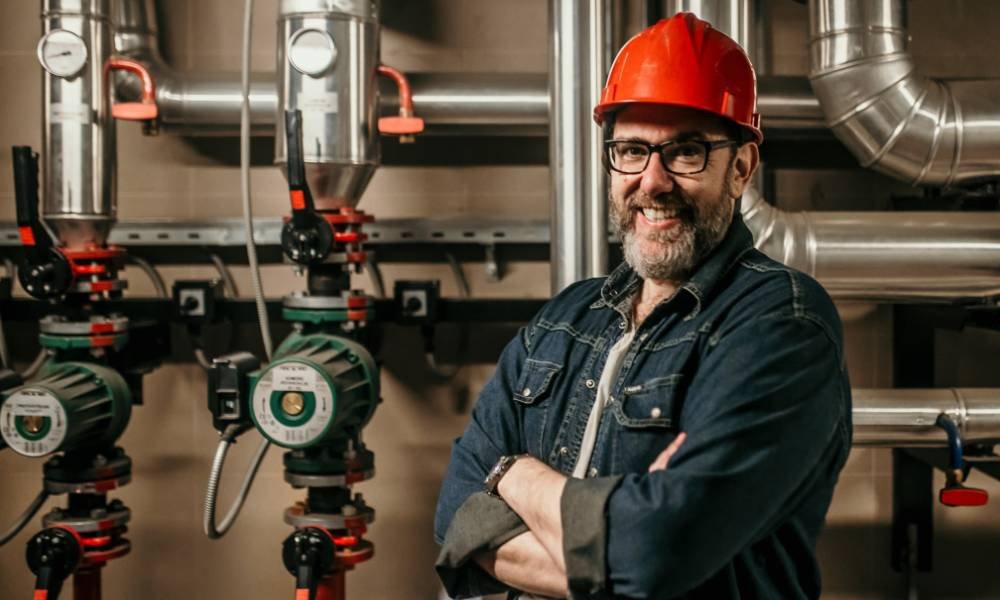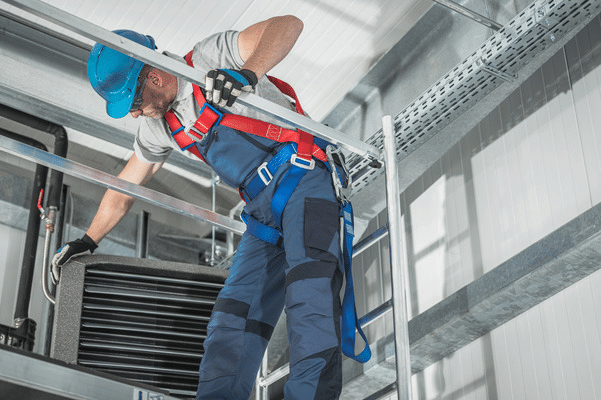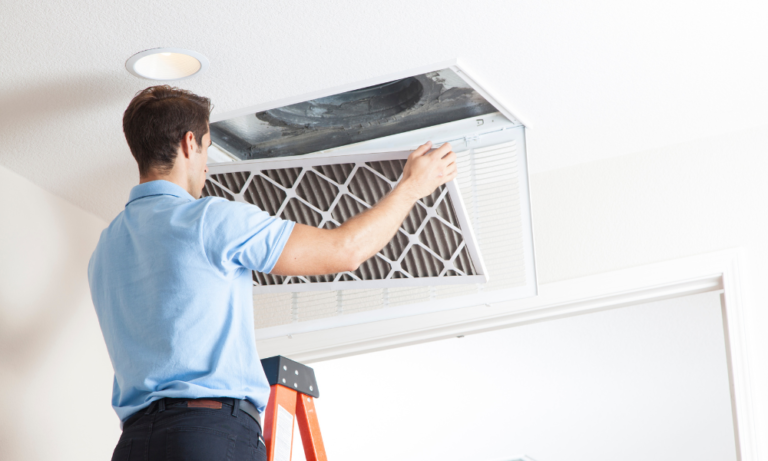Estimated reading time: 5 minutes
Your heating and cooling system plays a crucial role in keeping your home comfortable year-round. When it’s time for maintenance, repair, or installation, hiring the right professional can make all the difference. A skilled technician ensures your system operates efficiently and avoids unnecessary breakdowns.
In this guide, I’ll cover:
- Why hiring the right professional is essential
- The qualifications to look for when making your choice
- Practical tips and questions to ask during the hiring process
Let’s explore how to find the best fit for your home.
1. Why Choosing the Right Professional Matters
The person you hire to handle your HVAC system impacts its performance, longevity, and efficiency. Choosing the wrong person can lead to more headaches (and expenses) than solutions.
Risks of Hiring an Unqualified Technician
A poorly trained individual might:
- Reduce efficiency: Improper installation or repairs can make your system work harder, driving up energy bills.
- Shorten system lifespan: Overworked or incorrectly repaired systems wear out faster.
- Compromise safety: Faulty work can lead to gas leaks, electrical problems, or carbon monoxide exposure.
Benefits of a Qualified Professional
Hiring a skilled pro ensures:
- Reliable performance: Your system will heat and cool your home effectively.
- Energy savings: Properly tuned systems consume less energy, saving you money.
- Peace of mind: You can trust their work will stand the test of time.
2. Qualifications and Certifications to Look For
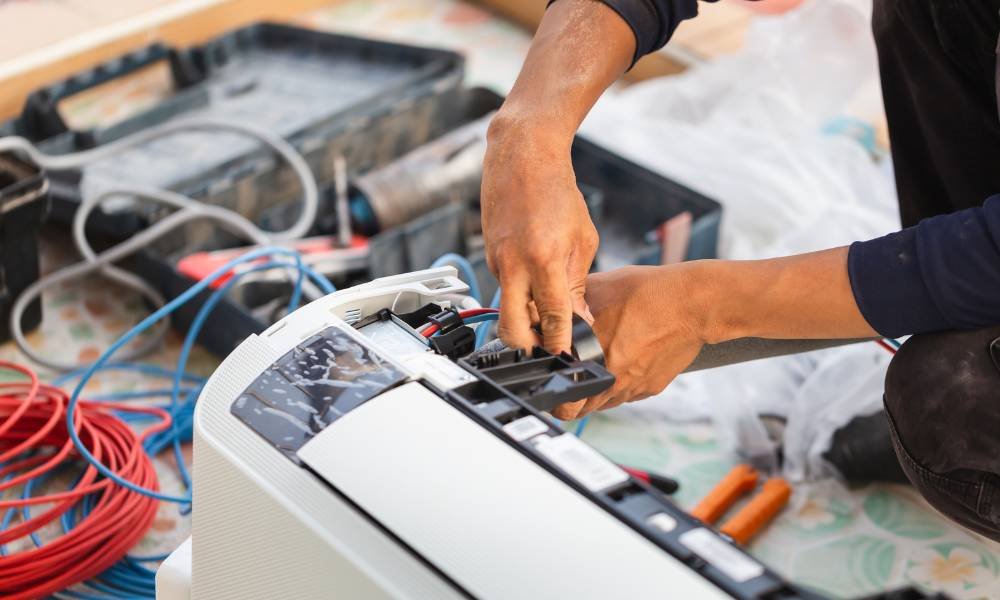
Not all technicians are created equal. Certifications and licensing set the pros apart from the rest.
Licensing and Insurance
- Licensing: Most states require heating and cooling professionals to hold a valid license. This ensures they meet safety and technical standards.
- Insurance: Make sure they carry liability insurance to protect your property and worker’s compensation to cover injuries.
Recognized Certifications
- NATE Certification: North American Technician Excellence (NATE) is a top credential indicating expertise and up-to-date knowledge.
- EPA Certification: This is essential for handling refrigerants safely and legally.
- Manufacturer Training: Some professionals receive specialized training for specific brands, which is helpful if you have a preferred system.
3. Experience and Specialized Knowledge
Experience brings confidence and efficiency, especially for complex repairs or installations.
Years of Experience
While everyone starts somewhere, a seasoned professional is more likely to troubleshoot effectively and avoid common mistakes. Look for someone with a proven track record in the industry.
Brand Familiarity
If you already have a specific system or brand in mind, find someone trained to work with it. Many manufacturers certify professionals to handle their equipment.
4. Reading Reviews and Gathering References
Before making a decision, it’s smart to see what others have to say.
Online Reviews
Check platforms like Google, Yelp, or the Better Business Bureau for ratings and feedback. Pay attention to consistent patterns—both good and bad.
Ask for References
A reputable professional should have no problem providing references from past clients. Contact a few to hear firsthand about their experience.
5. Communication and Customer Service
Good communication is essential for a smooth process. You want someone who listens to your concerns and explains their solutions clearly.
Transparency in Pricing
Look for professionals who provide detailed, upfront estimates. A breakdown of labor, materials, and potential additional costs shows honesty and professionalism.
Warranties and Guarantees
Reliable technicians stand by their work. Check if they offer warranties on parts and labor.
6. Availability and Emergency Services
Heating and cooling issues rarely happen at convenient times. Whether your furnace fails during a winter storm or your AC stops working on a scorching summer day, you need timely help.
Flexible Scheduling
Choose someone who can work around your availability for routine maintenance or installations.
Emergency Services
Check if they offer 24/7 support for urgent situations. Quick response times can prevent further damage and discomfort.
7. Balancing Cost and Value
While cost is a factor, don’t let price alone dictate your choice.
Get Multiple Quotes
Compare estimates from at least three professionals. This helps you gauge market rates and ensures you’re not overpaying or cutting corners.
Focus on Value
Look beyond the price tag. Consider experience, certifications, and reviews to understand the overall value you’re getting.
8. Key Questions to Ask Before Hiring
Asking the right questions ensures you’re making an informed decision. Here are some to start with:
- Are you licensed and insured?
- How much experience do you have with systems like mine?
- Can you provide references from past clients?
- What warranties do you offer on your work?
- How do you handle refunds or follow-up repairs if something goes wrong?
9. Preventive Maintenance Tips
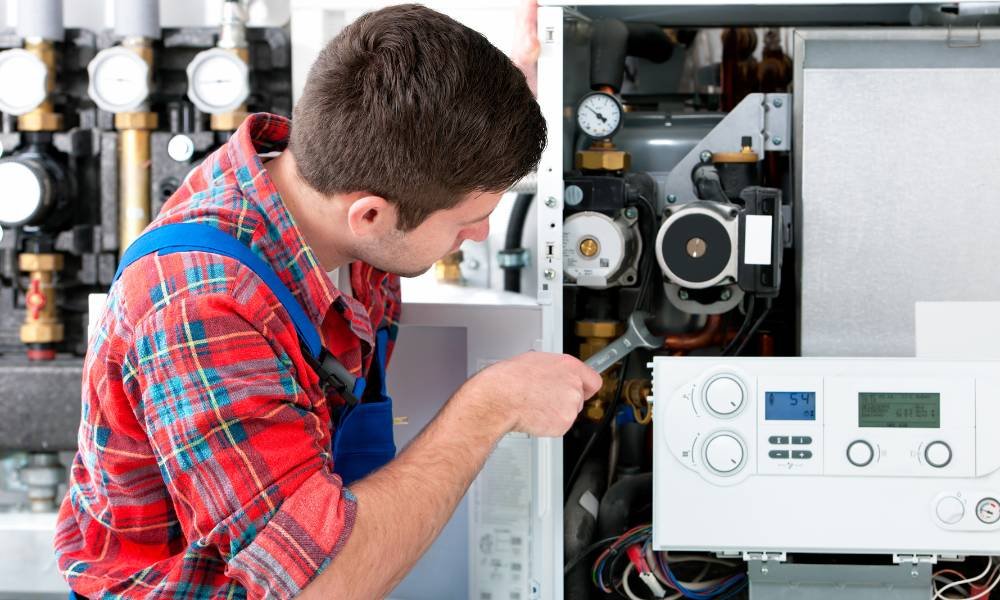
Once you’ve hired a trusted professional, ask about maintaining your system. Regular upkeep prevents breakdowns and extends its lifespan.
Schedule Regular Tune-Ups
Biannual checkups—before summer and winter—ensure your system operates efficiently during peak seasons.
Change Filters Often
A clean filter improves airflow and reduces strain on your system. Set reminders to replace it every 1–3 months.
10. FAQs About Hiring an HVAC Professional
What certifications should a professional have?
Look for NATE and EPA certifications. Manufacturer training is a plus for specific brands.
How often should I schedule maintenance?
Twice a year—once for your cooling system in spring and once for heating in fall.
What if I’m unhappy with their work?
Discuss warranties and guarantees upfront. A reputable technician will address issues promptly.
11. Conclusion
Choosing the right HVAC technician is about more than a quick fix—it’s an investment in your home’s comfort and energy efficiency. By prioritizing certifications, experience, and customer reviews, you’ll find someone who can meet your needs and provide long-lasting solutions.
Take your time, ask the right questions, and compare your options. With the right professional, you can enjoy a comfortable and efficient home all year long.
